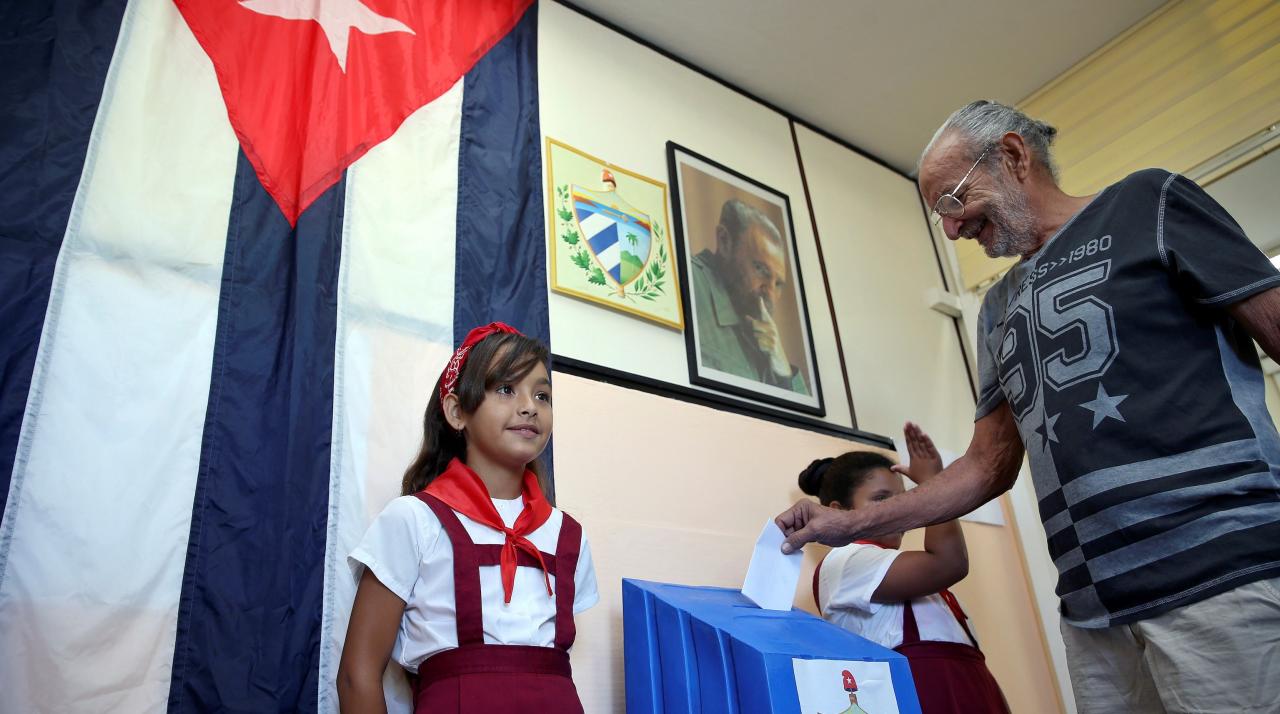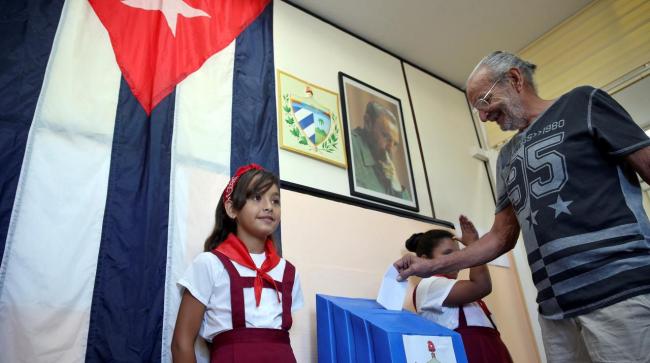On November 27 an electoral process took place in Cuba, corresponding to the election of Popular Power delegates at the district level, the lowest position in the hierarchy of power under the political model designed by the dictatorship of the Communist Party (PCC) to keep absolute power in their hands. The position is not even paid, and is assigned no resources.
Yet, to the untrained eye, (and this is the goal) it is virtually the basis of the whole model that some political science theorists tend to call "popular democracy." In practice, however, it is just a mirage. The PCC, which theoretically neither elects nor advances candidates, in fact controls the "mass" organizations that put candidates forward, through strictly controlled candidacy commissions.
The clearest proof of the banality and theatricality of the Cuban electoral system is the guarding of the ballot boxes. Instead of specialized security forces, the police, or the military, as in any other country, in Cuba it is children who look after them. Of course, they are only a symbolic ornament that aims to project a sense of innocence, tranquility, and the purity of Cuba's electoral process and political system. And this is an important part of the propaganda.
What does it really mean?
1. First of all, the regime's secret police (bearing the misnomer State Security), plus the rest of the regime's social and political control mechanisms, are so effective that there is no need for armed guards to watch them.
2. The staff of the polling station, and the officials of the National Electoral Council (CEN) who train and monitor them, are under the total control of the PCC, strictly selected by the channels that the Party has created for this purpose.
3. And, last but not least, there is the fact that nothing is decided in Cuban elections; they are only an autonomous self-affirmation mechanism of the PCC, the only possible candidate for power, even if this is not mentioned.
Why self-affirmation and not popular reaffirmation?
Although the people participate (still the majority of them) the voters are like actors, as are the organizers of the CEN, forming part of an electoral pantomime, driven by mechanisms of dependence, ignorance or fear.
The whole process is a great charade in which they pretend they are really engaging in a democratic exercise, and the people pretend they are really voting, for the world to believe that there is some degree of democracy in Cuba.
When the day arrives when elections are held in Cuba that actually decide something, where something is really chosen, where the people participate out of conscience and not out of fear of being singled out ... then they will have to assign security forces to the ballot boxes. Instead of "pioneers," those innocent and manipulable children, there will be armed guards to prevent something this important from being hindered or prevented.
Then they will be so important that they will have to be taken care of. Now it does not matter if the boxes are guarded by children, pigeons, spirits or gods. They are boxes of lies, of fiction, of theater. They mean nothing beyond the regime's need to feign viability and support from a controlled people devoid of rights.
An increasingly significant segment of the population is, however, throwing off the social control exercised by the regime, losing its fear, and not participating, or casting blank ballots. The abstention rate has been gradually increasing over the past two decades, and the increase this year has been very significant.
In the elections that were held under Fidel Castro's government, abstentionism was irrelevant, below 5%; in Raúl Castro's time it rose to 11%; and in those of 2017, with the "selection" of Miguel Díaz-Canel as president, it was already 14%.
After Díaz-Canel's time in office, this year the percentage of those who decided not to vote shot way up, to 31.5%. This is not only a protest vote against a regime that insists on continuity, but a clear message from the people to the Government that it demands democratic and economic changes, and that it is waking up and losing its fear of unconditionally obeying the regime.

